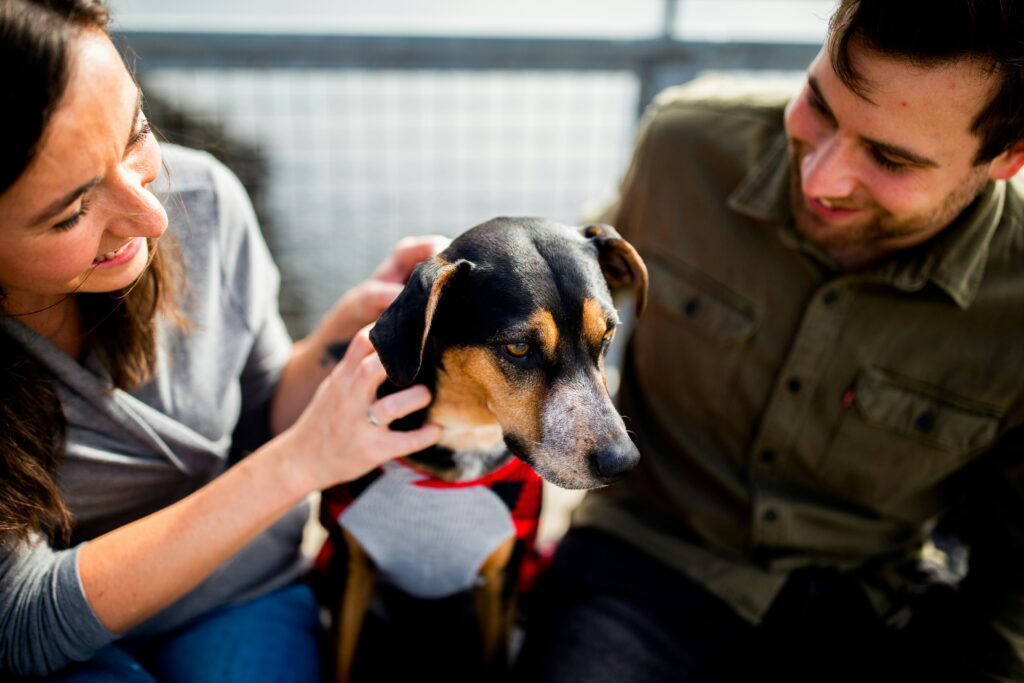If you’ve ever owned a dog, you know they’re more than just pets—they’re part of the family. And just like family, when they’re sick, you’ll do anything to help them feel better. Enter Doxycycline for dogs—a medication that’s got your furry friend’s back (and maybe a few other parts, too). But before you start popping pills into your pup’s peanut butter, let’s dive into what this medication is all about.
What is Doxycycline, Anyway?
So, what exactly is Doxycycline for dogs? Well, it’s not just a fancy name you toss around at the dog park to impress other pet owners. Doxycycline is an antibiotic, part of the tetracycline family (sounds fancy, right?). It’s commonly used to treat bacterial infections in dogs. These can range from respiratory infections to something as pesky as Lyme disease or even those annoying tick-borne illnesses. Doxycycline works by inhibiting the growth of bacteria, which means it doesn’t kill them outright, but it does a pretty good job of stopping them from multiplying and causing more trouble.
Now, don’t worry—Doxycycline for dogs is a prescription medication, so your vet isn’t just handing it out like dog treats. It’s prescribed after a thorough examination to ensure it’s the right fit for your dog’s specific needs.
When Does Your Dog Need Doxycycline?

Just like how humans get prescribed antibiotics for different infections, Doxycycline for dogs is used in various situations. Here are some common cases where your vet might reach for this magic pill:
- Respiratory Infections: If your dog is coughing, sneezing, or having trouble breathing, it might be a respiratory infection. Doxycycline can be part of the treatment to help your dog breathe easy again.
- Tick-Borne Diseases: Ticks are tiny but mighty in the world of spreading diseases. If your dog has been bitten by a tick, they could end up with something like Lyme disease, Ehrlichiosis, or Anaplasmosis. Doxycycline can help combat these illnesses.
- Urinary Tract Infections (UTIs): If your dog is making more trips to the potty than usual, or seems to be in discomfort when urinating, a UTI might be the culprit. Doxycycline can help get things back on track.
- Wound Infections: Dogs are adventurous by nature, and sometimes that means they get cuts or wounds that can become infected. Doxycycline helps prevent these infections from getting worse.
- Periodontal Disease: Yes, even dogs need to worry about their dental health! Doxycycline can be used to treat infections in the gums and teeth.
Basically, if your dog’s immune system needs a little help to fight off bacteria, Doxycycline is often a good choice.
How to Give Doxycycline to Your Dog (Without Losing a Finger)

Now, let’s get to the fun part—actually giving your dog the medication. If your dog is anything like mine, the moment they see you with a pill, they suddenly become the most elusive creature on earth.
Here’s a tip: Wrap the pill in something your dog loves—peanut butter, cheese, or even a piece of meat. You might have to get creative because dogs are notorious for spitting out pills like they’re auditioning for a role in a magic show. “And now you see it… and now you don’t!”
It’s also important to follow the dosage instructions to the letter. Don’t just eyeball it or think, “Eh, close enough.” Your vet will give you the exact dosage based on your dog’s weight, age, and the condition being treated. And yes, even if your dog looks at you with those sad puppy eyes, don’t give in to the temptation to skip a dose!
Possible Side Effects: What to Watch Out For
As with any medication, Doxycycline for dogs can have side effects. While it’s generally safe, it’s good to be aware of what to look out for. After all, forewarned is forearmed, right?
- Gastrointestinal Upset: This is the most common side effect. Your dog might experience vomiting, diarrhea, or a loss of appetite. If this happens, don’t panic—just give your vet a call to see if there’s a way to manage these symptoms.
- Discoloration of Teeth: This sounds scarier than it is. In young dogs or puppies, Doxycycline can sometimes cause a yellowish discoloration of teeth. It’s not a reason to avoid the medication, but it’s something to be aware of.
- Allergic Reactions: In rare cases, a dog might have an allergic reaction. Symptoms can include hives, difficulty breathing, or swelling. If you notice any of these, it’s important to contact your vet immediately.
- Sun Sensitivity: Doxycycline can make your dog’s skin more sensitive to sunlight, which might lead to sunburn. If your dog’s a sunbather, you might need to limit their time in direct sunlight or keep them shaded.
- Changes in Behavior: If your normally energetic dog starts acting lethargic or unusually tired, it could be a reaction to the medication. Keep an eye on them and report any concerning changes to your vet.
In most cases, side effects are mild and manageable, but it’s always better to be safe than sorry.
The Do’s and Don’ts of Doxycycline
DO:
- Follow the prescribed dosage: Your vet knows best.
- Give the medication with food: It can help prevent an upset stomach.
- Complete the full course: Even if your dog seems better, finish the medication to ensure the infection is fully treated.
- Store the medication properly: Keep it in a cool, dry place out of reach of children and pets.
DON’T:
- Skip doses: This can lead to antibiotic resistance or incomplete treatment.
- Give it to other pets: Medications are prescribed specifically for your dog. Don’t play vet and give it to your cat or other animals.
- Panic at side effects: Instead, calmly consult your vet for advice.
The Bottom Line: Should You Give Your Dog Doxycycline?
So, should you be giving Doxycycline to your dog? The short answer is yes—if your vet prescribes it. It’s an effective and commonly used antibiotic that can help your dog recover from various infections. Just remember to give it as directed, watch for any side effects, and always keep an open line of communication with your vet.
In the end, Doxycycline for dogs is a tool in your pet care arsenal. With the right information and a little bit of patience (and maybe some creative pill hiding), you can help your dog get back to chasing squirrels, digging holes, and doing all the other things that make them a beloved part of your family. After all, they deserve the best care you can give—one peanut butter-wrapped pill at a time!
Disclaimer
The information provided on this blog regarding medicine prices and side effects is solely based on data collected from public domains. I am not a doctor or medical professional. While I strive to provide accurate and up-to-date information, I cannot guarantee the absolute accuracy or completeness of the data. It is always recommended to consult with a qualified healthcare professional or doctor for personalized medical advice and information. The content on this blog should not assume any responsibility for any consequences arising from the use of the information on this blog.
Thank you.
